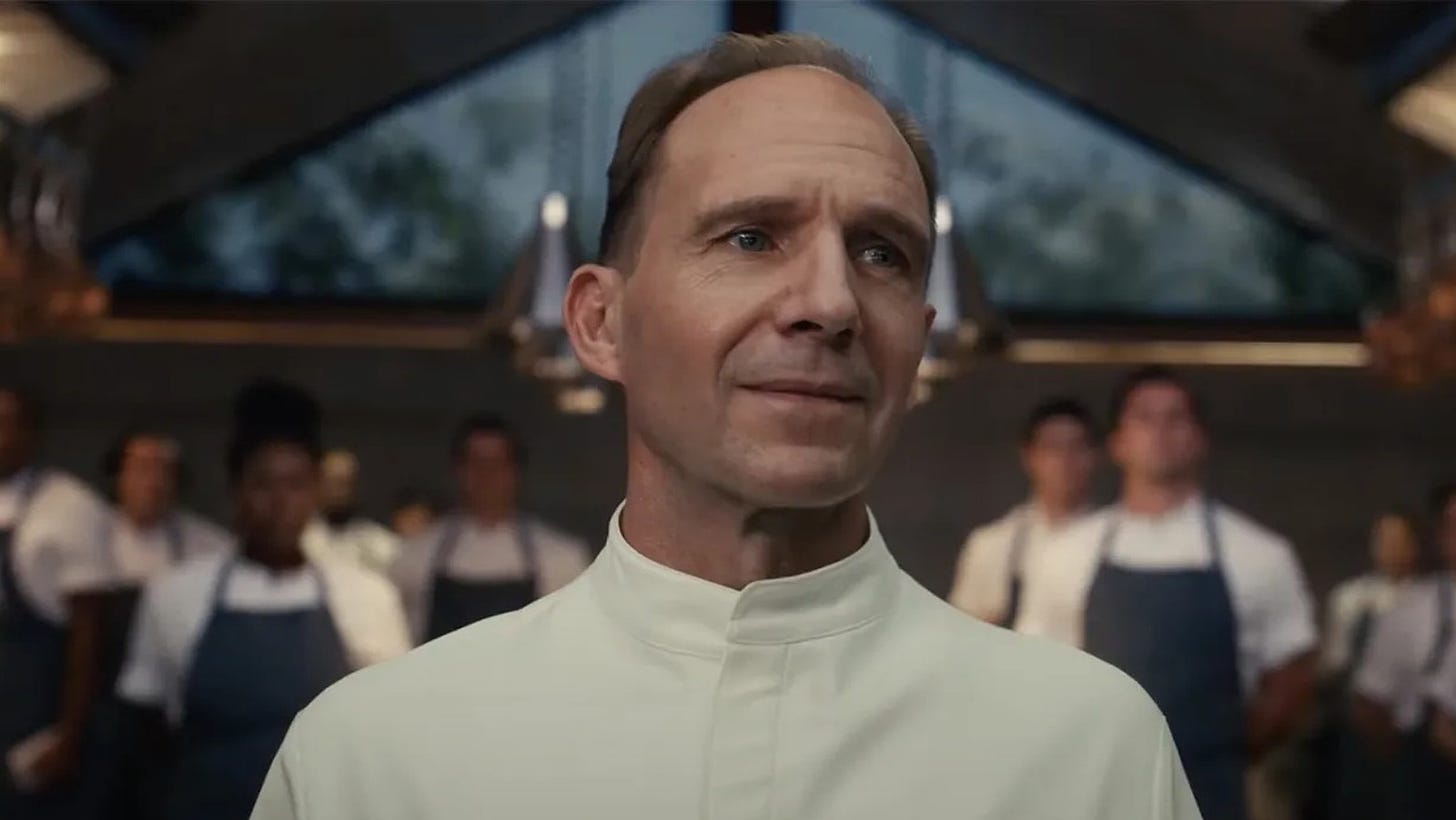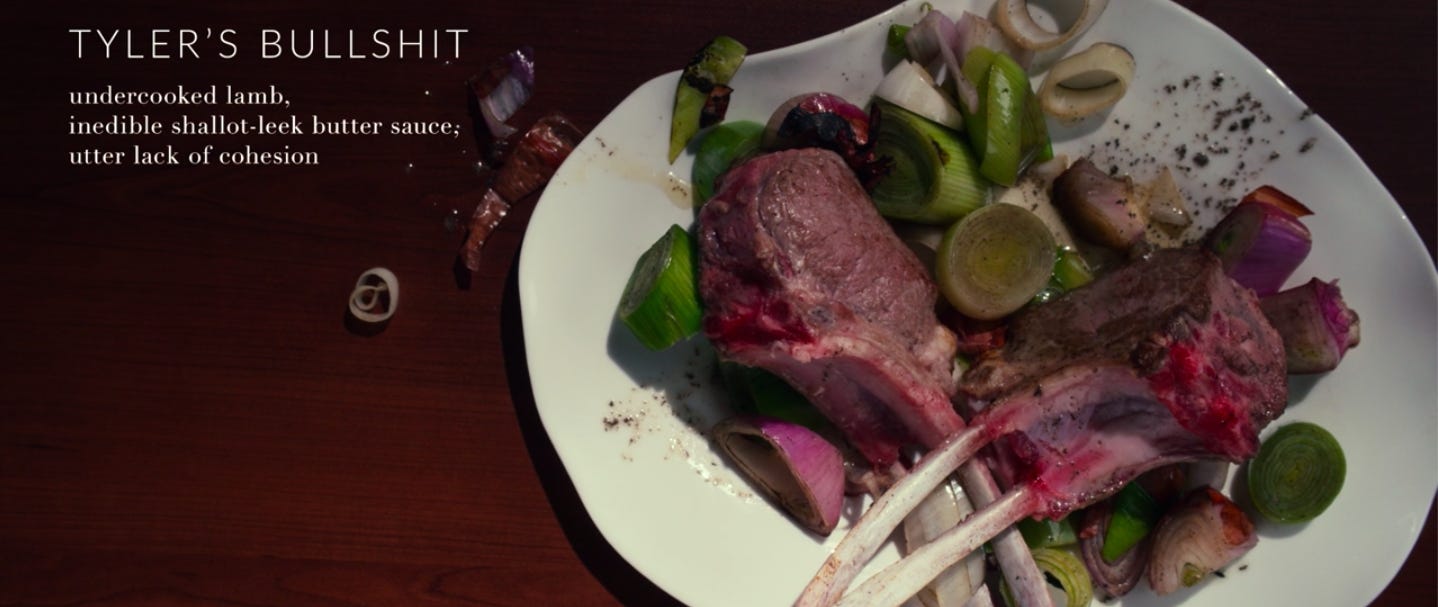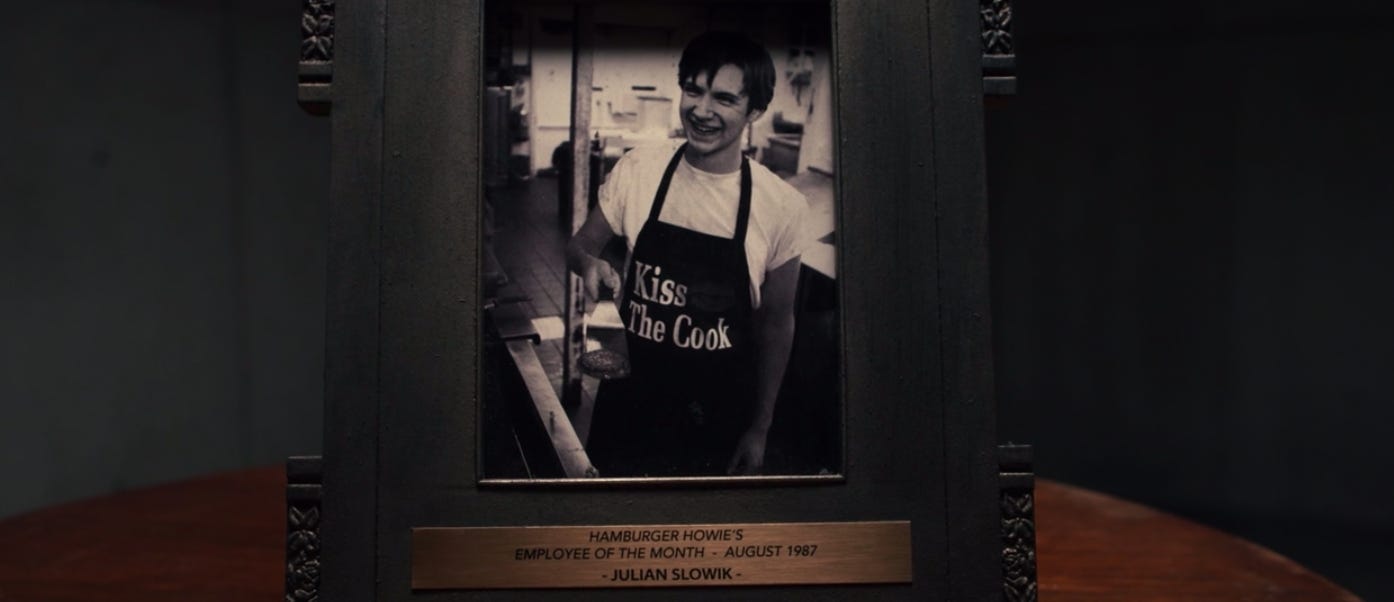'The Menu': a Revenge Fantasy of the Exploited Artist
Revenge is a dish best served on a private island with no signal
Pablo Picasso once said, “the meaning of life is to find your gift. The purpose of life is to give it away.”
What artists, or creators in general, enjoy doing the most is serving. The joy in creating — whether it’s music, paintings, cooking, or writing — is the ability to use your gift to make someone else feel good.
The Menu is about Julian Slowik, a world-class chef whose love for cooking is soured by the status anxiety of his wealthy customers. What used to be a joyful craft has been twist-and-turned into a labor of performative love. This is the story of a chef forced to play along to pretense, an artist forced to play as an entertainer.
“You cook with obsession, not love. Even your hot dishes are cold. You're a chef. Your one purpose on this earth is to give people food they might enjoy, and you have failed. You failed, and you bored me. And the worst part is...I'm still f*ckin' hungry.” — Margot
The Critic
Lilian Bloom and Ted, her publisher, represent the critics and gatekeepers of the creative world. They suck the joy out of cooking by exploiting restaurants and chefs for the sake of their own reputation as cultural know-it-alls and haute trendsetters. Lillian reads into every bite, nitpicking and finding a fault in everything and even inventing new words so she can publish more content.
The Finance Bros & The Angel Investor
These characters represent the commodification of art. Chef Julian drowns his angel investor who has made decisions that compromised culinary excellence in the pursuit of profit:
“He would even request substitutions, despite the fact that there are NO SUBSTITUTIONS AT HAWTHORNE!!!” — Chef Julian
This deleted scene explains the origin of Hawthorne:
Julian never cared about big names or riches — in fact, he has once tried to escape the food investors who he knew would destroy his love for cooking by pushing him into the spotlight of fine dining.
The Regulars
Despite dining at Hawthorne for over half a dozen times (each of which costed $1250 per head), the old billionaire couple only did so to maintain their elite image. Never once did they truly appreciate the craft of Chef Julian’s dishes — they barely bothered remembering what they ate.
The Fan
Tyler’s sin is that he is a charlatan; he uses his knowledge of culinary arts and obsession with Chef Julian to make himself appear as a man of culture, class, and taste. This house of cards quickly collapses and Tyler is properly humiliated when the chef commands him to cook a dish, a task that he fails miserably at.
The Movie Star
He never cared about the food, he didn’t even know who the chef was. He was only there to practice his upcoming scene in a movie that might revive his acting career. He’s vain and thinks that all problems can be solved with a little bit of charm or a quick-and-dirty shortcut.
The Escort
In a room full of snobs and charlatans, Margot is the only one that Chef Julian not only relates to, but even takes pity on.
What does the escort and the exploited artist have in common? Both are people with dreams who have been mocked and reduced down to mere commodities consumed for selfish pleasure. Chef Julian felt as if he has been forced to become a sellout. His craft, his passion, his art — that is, cooking and the joy of making others happy through food — has been manipulated by various compromises people have made in their own personal pursuit of profit (i.e., the angel investor), reputation (i.e., the critics), pride (i.e, the brainless fan and the movie star), and status (i.e., the wealthy regulars).
The fourth course, “The Mess”, was the most poignant reminder of this:
Sous-chef Jeremy’s suicide and his teary confession of shame, hate, and self-loathing symbolize how Julian felt about his passion for cooking turning into a miserable pursuit of trying to satisfy people who could never be satisfied to begin with. In the spotlight of fine dining, serving became pleasing. Cooking was no longer enjoyable, it became a form of enslavement.
What Julian really wanted to say to the world was said at the beginning of the dinner:
“But I have to beg of you one thing. It’s just one.
Do not eat.
Taste. Savor. Relish. Consider every morsel that you place inside your mouth. Be mindful. But do not eat. Our menu is too precious for that.”
What he ultimately wanted to avenge is the selfishness and greed that has killed the soul of his art. His love for cooking has become wholly consumed, but never tasted, by the self-obsessed egos of people with an insatiable appetite for more fame, more money, and more vanity.
All he ever wanted was for his cooking to be consumed with as much love as it had been created with. All he ever wanted was for people to appreciate his cooking, to not only experience but to enjoy what he makes. Not for profit, self-affirmation, or status signalling, but to truly enjoy his cooking for the sake of it.
No ending quote today, but an ending track:






